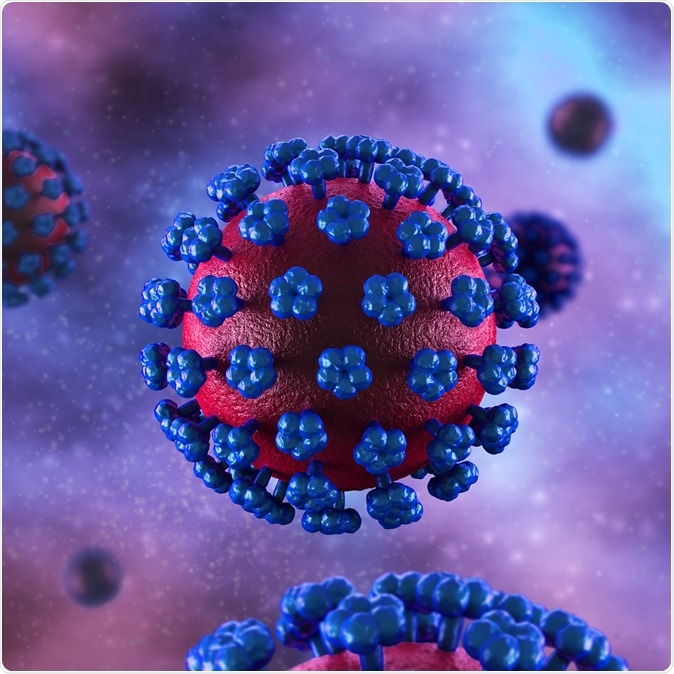Nigeria has been affected with an outbreak of the deadly Lassa fever since the start of this year. This disease typically has a high rate of fatality, no known cure and no vaccines have been developed against it yet. This is an unprecedented outbreak of this disease that is spreading faster than before. It is infecting more individuals than health workers can handle with their limited resources, say official sources.

Lassa Fever Cell - in fluid. Image Credit: Decade3d / Shutterstock
Lassa fever is also called a “viral hemorrhagic fever” because it can damage several organs of the body including the blood vessels that may rupture and lead to bleeding. This bleeding may be the cause for death. The incubation period from contracting the infection and showing symptoms is around 3 weeks. The disease usually starts with mild symptoms including fever, weakness, muscle pain; headache etc. which make it difficult to differentiate this disease from dengue fever or malaria. With the course of progression of the disease, there may be bleeding tendencies leading to bleeding from mouth, nose and other parts of the body. This is similar to other hemorrhagic fevers such as Ebola. Usually case fatality rate with Lassa fever is around 1 percent. The percentage of fatality however rises if the patient is a pregnant woman with an 80 percent risk of the mother and the baby dying. Diagnosis can be made from blood or tissue samples in specialized laboratories only.
This latest outbreak is cause for concern because of the high rates of infection and fatality say experts. The natural host for this virus is the multimammate rat. These mammals are found across West Africa from where they gain access to humans in their homes. The presence of these animals in high numbers may be one of the reasons for this untimely outbreak. The disease spreads through contamination of food and water sources or objects at home with urine, saliva or feces from infected rats. The infection may also spread from person to person through body fluids. Healthcare personnel caring for patients without protective gear may also spread or contract the infection inadvertently. There is also a possibility that the virus has changed characters and is affecting individuals more during this season. Some experts believe that the general population might be more aware of the illness and thus the reporting may be higher than before. This could be one of the reasons for these high numbers.
Public advisories thus include rat and pest control, preventing entry of rats into homes, covering rubbish and dustbins, storing food and water in clean and safe environments. The healthcare personnel are advised to wear protective gear.
According to latest reports from Nigeria Centre for Disease Control, there have been 1081 cases (including 14 health care workers) of Lassa fever in Nigeria between 1st January and 25th February 2018. Of these 317 could be confirmed in the laboratory. The case fatality rate is 22 percent says the report. Around 90 patients are reported to have succumbed to the disease. These are just estimates say the sources, since many cases could have been missed. Lassa fever has been affecting these regions since the 1960’s. Apart from Nigeria, the other affected countries include Ghana, Mali and Sierra Leone. The World Health Organization (WHO) is helping Nigeria cope with this current outbreak along with a team of healthcare personnel from Public Health Rapid Support Team, UK. Works are on regarding development of vaccine against the infection. CEPI (Coalition for Epidemic Preparedness Innovations) along with Wellcome Trust, national governments and the Bill & Melinda Gates Foundation are working towards an effective vaccine against Lassa fever.